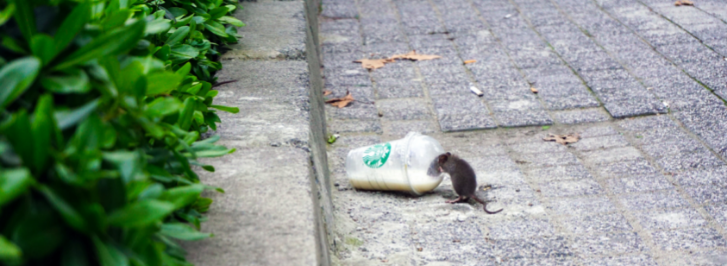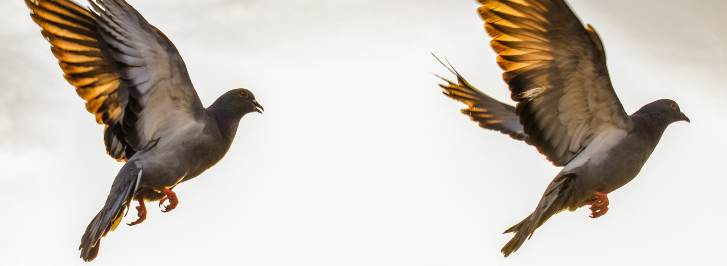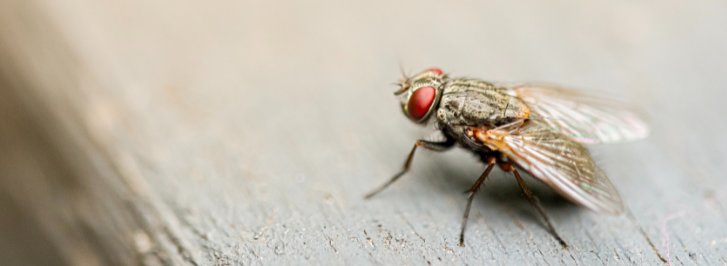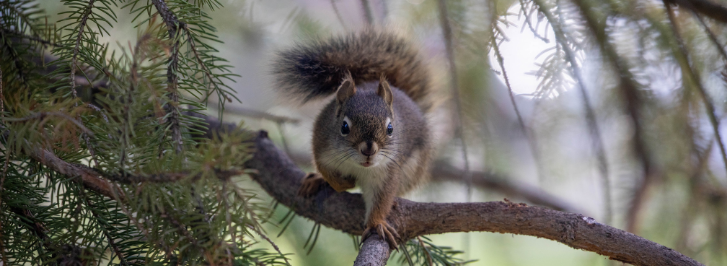I Hear Noises in the Attic

Whether you are a homeowner, or someone who is renting, hearing noises from your attic can be extremely worrying and it may indicate that there are rodents or other types of wildlife living up there. It’s a very common issue and without knowing what to listen to or look out for, it can be difficult to identify what you could be dealing with.
Lofts are ideal quiet spaces for squirrels, birds and rodents and they can cause serious damage by gnawing on your stored items or even creating fire hazards by chewing electrical cables. It’s important to investigate this as soon as you start hearing noises from the loft because droppings and nests are perfect breeding sites for insects with bugs and diseases which you definitely don’t want in your home.
How to Find Out What Kind of Pest Is Living in My Attic?
Fortunately, there are many factors you can watch out for to determine what kind of animals got into your loft. Finding out what time of the day you can hear noises, the location of those noises and what the noises sound like will help you narrow down possibilities. Next up, if it is safe to do so, go up there, to try and spot any droppings, nesting or serious damage, which will give you a rough idea. Equally, if you don’t fancy venturing into the attic, call an expert to come and help.
In our guide, we will tell you how to find out what pests might be living in your attic and recommend what the best steps are to remove them.
What Is in My Attic?

Scratching and gnawing sounds could be mice, rats or squirrels while flapping sounds can be birds who are mostly active in the morning. Shrill squeaks and vocals can be rats or mice, while sharper ‘shrieks’ could be more serious and can be a sign of infestation. Buzzing sounds indicate wasps or flies, which can carry diseases and won’t go away permanently without professional help.
Noises in My Attic Early Morning and During the Day
The time of the day you can detect those noises from your attic can narrow down animals. If it’s during the day, especially early in the morning or before sunset, then it’s very likely that it’s a squirrel or a bird as they are active during the day. Rolling sounds might indicate that a squirrel is rolling nuts or debris around your attic while flapping or rustling sounds mean that you are dealing with birds.
Noises in My Attic at Night
If the noise happens in the night, then it is most likely a rat, mouse, bat or another nocturnal animal.
The location where the sounds are coming from can also be a key indicator to determine what is in the loft. If it is coming from the walls or very tight places, it could be rodents like rats or mice.
Mice in the Attic

Mice in your attic will make sounds like light scratching or nibbling and may wake you at night. They need to be treated urgently in order to avoid infestation as they breed at a very quick rate. One tactic to prevent mice is to try and cover the entrance point, which may be a very small place such as a vent or pipe, however, they may even create their own way in through the insulation of your home. You can buy traps and poison on the high street, but those don’t get rid of the nests themselves.
Rats in Loft Space

It can be distressing to find out that you have rats in your loft. You can identify them by spotting light scurrying and scampering, maybe some scratching at night time, especially after sunset. They can run fast up and down the walls. This is very serious and should be taken care of urgently. You can proof your loft space to prevent entry, but the infestation should be treated first to help with long term rat removal.
Rats scurry across the floor at night and throughout the day, and can fit through small spaces and take shelter in cavity walls and loft insulation. Mice traps are too small for rats, so your best option is to call out a professional such as Regional Environmental Services to help you with rat removal or install live traps.
Birds in the Attic

Pigeons or birds in the attic create mess and health risks. During the breeding season birds are protected, so removal can be an issue. Blocking entry is one solution or using chicken wire or a solid barrier. It is also possible to proof the outside of your home from pigeons and birds with spikes, wire systems and bird netting. You can recognise them by frantic flapping and tweeting sounds and chirping during the daytime. They can ruin the roof and tiles. The best solution is to trap them and then remove them. You can fill a bowl with bird feed, put it in a cage trap and wait. After getting rid of them, cover entrances so they won’t come back later.
Insects in the Attic
Insects are attracted by food, textiles or wood in the loft, or they might be living off the droppings of other pests. Home products can keep them in control, but professional help might be needed to get rid of them for good by stopping the life-cycle.
Wasps or Bees in the Attic

Wasps or bees are extremely difficult to remove without professional help and they can be very dangerous for those sensitive to stings. They are common in the spring and summer months and a loft is a perfect place for nests. To remove the wasps, you do not need to remove the nest, but you need to effectively treat it and the nesting wasps.
Humming sounds can be heard when there is a large nest of wasps or bees in the attic and a nest can be a size of a football. You should not get too close and threaten them because they will likely sting multiple times, which can be dangerous if you are allergic. You should not try and remove the nest without being experienced or wearing protective wear, it is a problem best to be left for the experts.
Flies in the Attic

Attic flies are called cluster flies, but there can be several different species in the attic. They can cause damage, especially if you are finding maggots in the attic. It is possible to treat flies with DIY fly products or fly removal techniques, but certain species are hard to get rid of, therefore they require professional help. Finding out the species can determine what kind of help is needed.
It is important to act fast because although flies live for only a maximum of 30 days, they can lay 4-600 eggs in that time. They enjoy being in areas where moisture levels are high and are attracted by food and uncovered bins. To get rid of them around the home or from your business, remove the moisture with a dehumidifier, cover food items and clean bins.
Bats in the Attic

The scratching of bats is very soft, and you can’t really hear them because they fly high. You might be able to spot them during the night when they make their way in and out of your home, showing you an indication of their entry points. The only time you will hear them is when they get stuck in walls and trying to get out or if there are a lot of them, they can be heard chirping at dusk – otherwise, they are pretty quiet.
When it comes to removing bats, you are simply not allowed, as they are protected and endangered species. Killing, removing or blocking their roosts where they return every year is an offence and it’s illegal. But you don’t have to worry, because they are completely harmless and won’t do any harm to your home.
If you need advice about bats living in your attic, get in touch with the Bat Conservation Trust.
Squirrels in the Attic

Squirrels are active early mornings or in the evenings and you can overhear them running around making loud frantic and scratching noises. They can cause serious damage by gnawing on wood and electric cables. The only way to remove them is by catching them in traps. It is an offence to release grey squirrels once they have been caught, so they must be killed humanely. This doesn’t apply to red squirrels. In order to prevent them from entering your house, it’s a good solution to cut nearby branches and cover all entrances that are close to trees.
Need Help with Your Attic?
Regional Environmental offer domestic and commercial solutions for all bird, bird waste/fouling and pest control problems across the whole of London, Salisbury and many surrounding areas. With a real understanding and loads of experience within the industyr, our solutions are not invasive and designed to let your day to day flow as normal. Whether that is your home life or your day to day business. For all your bird problems, ranging from waste removal to bird prevention, get in touch with us today by calling 0208 045 0445 or call 0845 053 1662 outside of our regular office hours.
Regional Environmental provides a comprehensive pest control service. Contact us to find out more.


